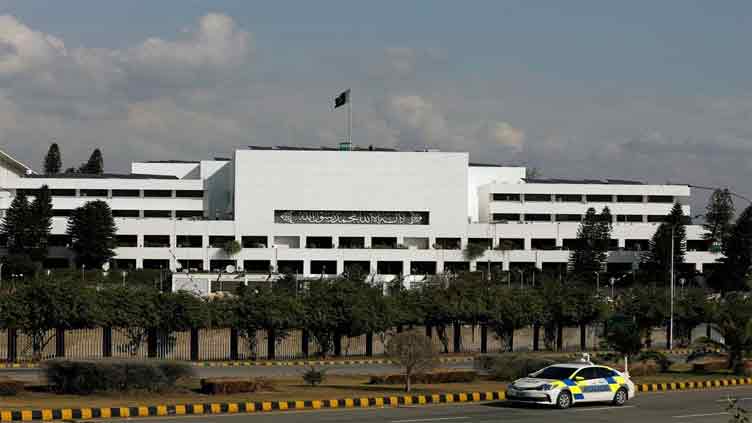What lies ahead for Pakistan as it heads to polls

Pakistan
Election is meant to be held within 90 days, but uncertainty looms over the date
ISLAMABAD (Reuters) – Pakistan Prime Minister Shehbaz Sharif has dissolved the lower house of parliament, paving the way for a general election under a neutral caretaker administration.
The election is meant to be held within 90 days, by November, but uncertainty looms over the date as the nation grapples with constitutional, political and economic crises.
Here are some key questions on the situation and how the next few months are expected to play out.
WHEN DOES A NEW GOVERNMENT COME IN?
Shehbaz Sharif will remain prime minister until a caretaker premier is selected. He and the opposition leader in parliament are to pick a consensus leader to head the caretaker administration.
Under the constitution, they have until midnight on Saturday to reach an agreement. If they do not, the decision will go to a parliamentary committee, and then finally to the Election Commission of Pakistan to decide from a list given by both.
This process could take up to a week if an immediate consensus is not reached. The caretaker prime minister will then choose a cabinet to run major ministries.
The PTI chairman, the country's main opposition leader, will have no role in this process because his party members resigned from parliament last year to protest against his ouster in a no-confidence vote.
The opposition now consists of his party's dissidents, including the leader of the opposition Raja Riaz. And the former prime minister currently jailed for three years after being convicted on graft charges and is barred from contesting any elections for five years.
WILL THE ELECTIONS BE DELAYED?
The caretaker government must hold elections within 90 days. However, after the outgoing government approved a new census in its final days, new electoral boundaries must be drawn up by the Election Commission.
The exercise of drawing fresh boundaries for hundreds of federal and provincial constituencies in a country of 241 million people may take at least six months or more, according to a former commission official.
The Election Commission has to announce how long it will take to complete the exercise, which may also involve litigation by candidates over the new formations of the constituencies, and, based on that, give an election date.
WHAT IS THE ESTABLISHMENT'S ROLE?
The military continues to have a huge role behind the scenes in the country. It has ruled Pakistan directly for over three decades of the country's 76-year existence, and wields extraordinary power over politics.
Political analysts fear that if the caretaker set up stretches beyond its constitutional tenure, a prolonged period without an elected government would allow the powerful establsihment to consolidate its control.
WHO ARE THE MAIN CONTENDERS?
There are three main contenders for leading the next government: Pakistan Tehreek-e-Insaf (PTI), the Pakistan Muslim League-Nawaz (PML-N) of Shehbaz Sharif and the Pakistan Peoples’ Party (PPP).
With the PTI chairman in jail and barred from the polls, his party will hope to cash in on supporters' sympathy and anger and repeat its 2018 election victory. But amidst a continuing standoff with the military, PTI's prospects hinge on a detente with the generals, which looks unlikely as it stands.
Three-time premier Nawaz Sharif, the brother of the outgoing prime minister and whose PML-N was the senior partner in the outgoing coalition government, is seeking a return from exile. But with a corruption conviction against him still in force, Shehbaz remains a front runner to return to power.
Bilawal Bhutto Zardari, 34, the young chairman of the PPP and son of former prime minister Benazir Bhutto, is another key candidate. He made waves locally and in key foreign capitals in his first government job as foreign minister in the outgoing government, and is widely seen as a future premier.
CHALLENGES IN THE LEAD UP TO THE POLLS
Economic stabilisation is the top challenge with the $350 billion economy on a narrow recovery path after a bailout from the International Monetary Fund averted a sovereign debt default. Economic reforms have already fuelled historic inflation and interest rates.
Political uncertainty is another major front after the PTI chairman’s jailing and ban. There was no violence following his arrest, unlike in May when his supporters went on the rampage, but his continued detention will raise questions over the credibility of the election.
Constitutional and legal questions are bound to come up if the elections are delayed beyond the 90 days, with an active Supreme Court known to step in to interpret constitutional questions.

